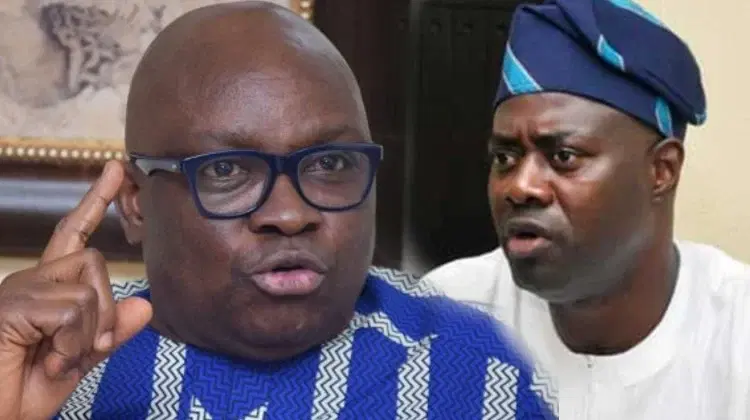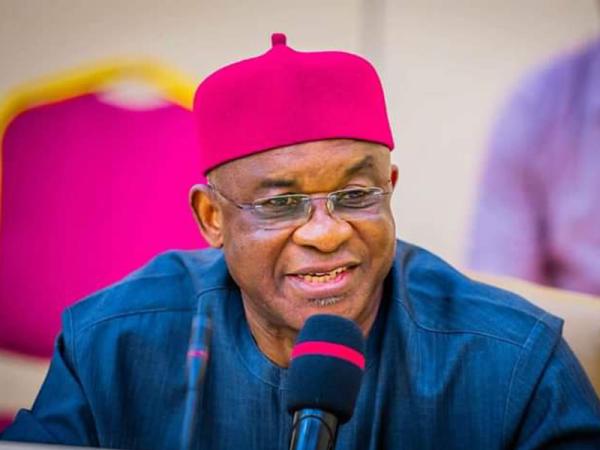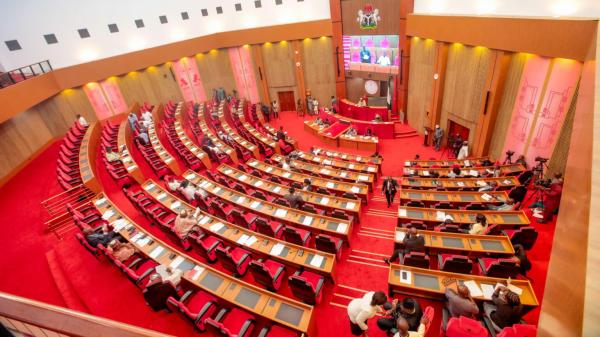
The Senate and upper legislative chambers in many democracies are referenced by the longevity of its members. However, cultural differences, rotation, intra party power fights among other issues make Nigeria an exception.
The one time common news of the repeated removals of Senate Presidents may sound like ancient history to many, but it was really not too long ago. The last time a Senate President was removed was in 2005 when Senator Adolphus Wabara was forced to step down from office and Senator Ken Nnamani elected in his place following the former Senate President’s alleged involvement in the bribe for budget scam in the Federal Ministry of Education.
Senator Nnamani went on to serve out the rest of the term in the Fourth Senate before the Fifth Senate elected the famed regime change champion, Senator David Mark as its president at the beginning of its term in June 2007.
Before the election of Senator Mark as president in 2007, the Senate had between 1999 and then thrown up five Senate Presidents in a period that the Senate was more known for its instability than for any other legacy.
The election of Senator Mark, however, led to a stop of the frequent and remarkably, embarrassing changes in leadership of the legislative chamber.
The coincidence has, however, not been lost on some who have traced the election of Mark as the harbinger of peace to the legislative chamber. Other more mischievous pundits have on their part traced the instability to Mark himself, claiming that he was more or less the author of the instability and has since his election now conveniently packed away the banana peels that at one time caused the regular fall of his predecessors.
Stability of the Senate
The stability of the Senate under Senator Mark and the collective experience of the leadership of the Senate that includes his deputy, Senator Ike Ekweremadu and Senate Leader, Senator Victor Ndoma-Egba (SAN) is in the opinion of some an advantage for the country’s democracy. It is no surprise that there is a growing opinion for stability not just in the leadership of the legislative chamber, but in the generality of the 109 chamber Senate.
It is an argument that is bound to ruffle feathers especially among advocates of rotation, zoning or power shift in the polity.
It was thus remarkable that the political mainstream in Senator Mark’s home state of Benue have come around to rally round for an unprecedented fifth term for the senator.
“We in Benue state have endorsed the candidature of Mark to return to the Senate,” Governor Gabriel Suswam said at a recent book launch in Abuja.
“The position of Senator Mark is not contestable. We want him back and there is no question or argument about it,” he added for emphasis. Suswam is himself fighting to go to the Senate, albeit from another senatorial zone presently occupied by former party chairman, Engr. Barnabas Gemade.
Some mischief makers were wont to ask whether he would also endorse his new political foe, Gemade in the same way he has endorsed Mark.
While Mark seems to be having his way almost effortlessly back to the Senate, the same apparently is not the same with two of his immediate lieutenants in the Senate, Senator Ike Ekweremadu, the deputy president of the Senate and Senate Leader, Senator Victor Ndoma-Egba, SAN.
Despite his unprecedented successes in the Senate, especially in navigating the National Assembly through unprecedented successive efforts in the amendment of the constitution, Ekweremadu is facing a stiff challenge from the outgoing governor of his native Enugu State, Mr. Sullivan Chime who is reportedly mobilising to challenge Ekweremadu for the Enugu West Senatorial Seat.
It is a battle that many see as one of the major challenges in the forthcoming primaries of the PDP, especially given the acclaimed successes of Ekweremadu in bringing democracy dividends to his constituents and the capacity of Chime to utilise the incumbency factor to his advantage.
Mr. Nicholas Uzor, a commentator on public affairs in a submission avers that the legislature is the Central Processing Unit (CPU) of any democracy that should be given the best. It is perhaps in that direction that he submits that performing legislators should have maximum stay in the legislative chamber.
Contrasting the situations of Mark and Ekweremadu, Mr. Ozor in a statement asserted that “The Government and people of Benue State cannot be clamouring for the return of Senator David Mark as Senate President,” while persons he claimed are interested in the deputy Senate president’s seat “work against the position Enugu already has- the same position that has attracted over 140 development projects enjoyed across the state, and the same high-ranking lawmaker who broke the jinx of constitution amendment and helped actuallise the age long quest for an international airport in the South East, to name a few. Let us put our best foot forward.”
Senator Ndoma-Egba just like Senator Ekweremadu is reportedly being tackled by political permutations at home. Ndoma-Egba who is in his third term in the Senate is reportedly in a match-up with another third term member of the House of Representatives, John Enoh, the powerful chairman of the House of Representatives Committee on Finance for Ndoma-Egba’s Cross River Central senatorial seat.
Enoh, a strong associate of Speaker Aminu Tambuwal it was learnt, aims to move up to the Senate and has Ndoma-Egba, his senator as a stumbling block.
Stumbling block
The squabble for the Cross River Central Senatorial seat has according to some accounts caused a rift in the long standing political harmony among PDP stalwarts in the state.
Ndoma-Egba’s associates cite as reason for his return what they claim as his contributions to the stability of the Senate which has seen him forge a sort of harmony with the executive arm of government especially in the realisation of the legislative agenda of the administration.
In pushing the crusade for institutional stability in the legislative branch, Uzor drew reference from the United States, saying: “We must begin to see the parliament as a critical arm of government that deserves the best hands. We need to see it as a breeding ground for great leadership. US Senate President is the Vice President. The current US Vice President, Joe Bidden is the 14th longest serving US Senator (1972 to 2008). His predecessor, Dick Cheney was also elected five times as member of the House of Reps.”
“About 23 US Presidents -Madison, Monroe, John Quincy Adams, Jackson, Van Buren, Tyler, Polk, Fillmore, Pierce, Buchanan, Johnson, Hays, Garfield, Harrison, McKinley, Harding, Truman, Kennedy, Johnson, Nixon, Ford, George H. W. Bush, and Obama were once members of Congress.”
However, advocates of institutional stability in the National Assembly have to reckon with the local politics prevalent in the constituencies of all senators.






















